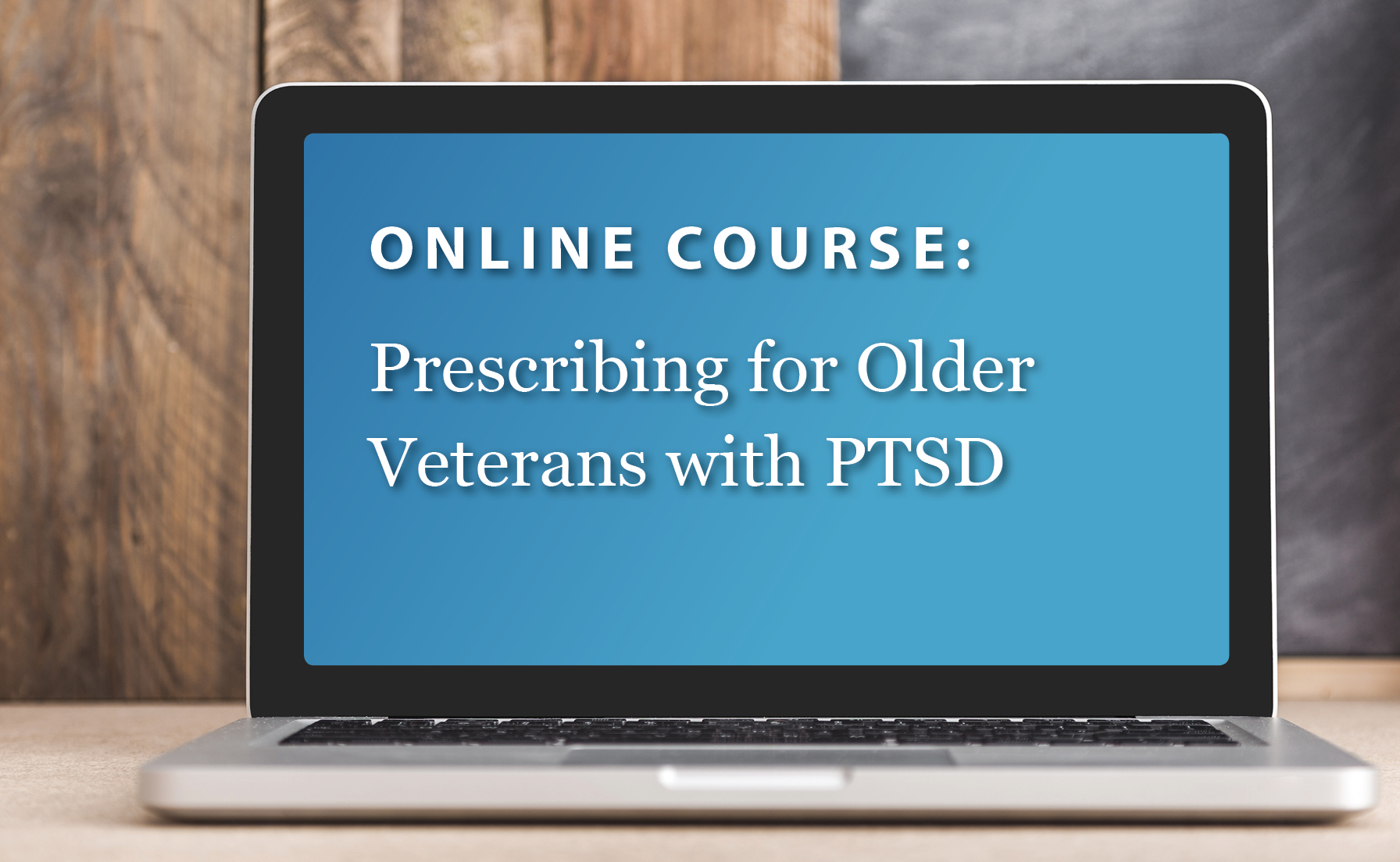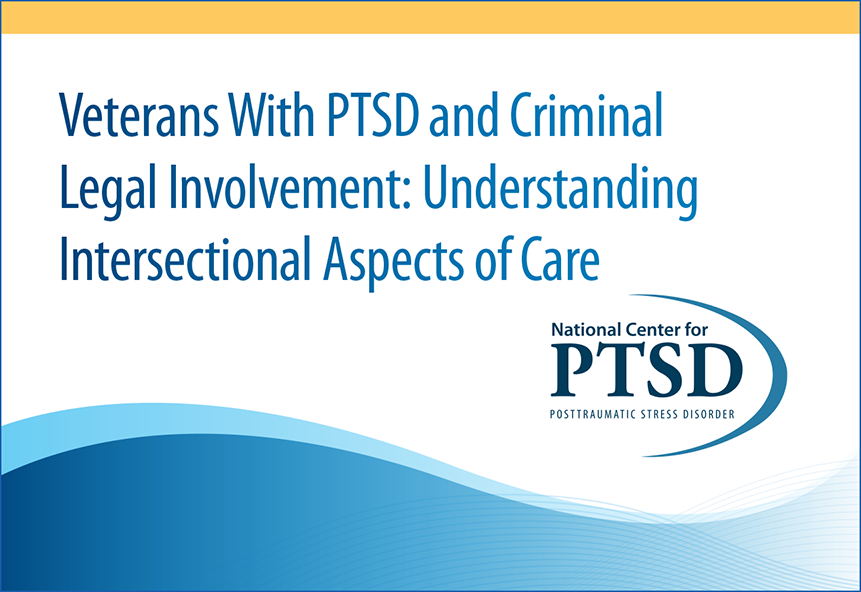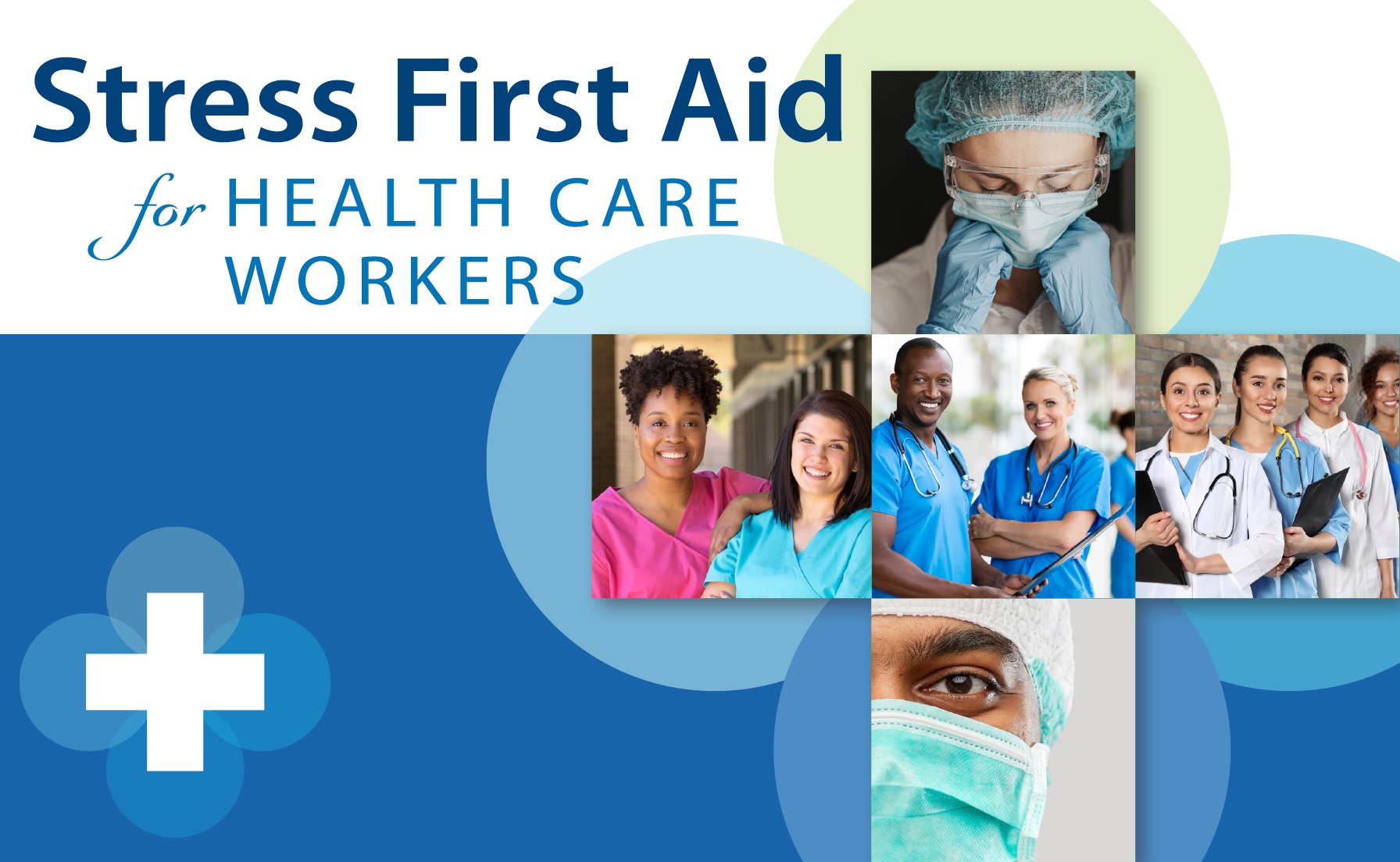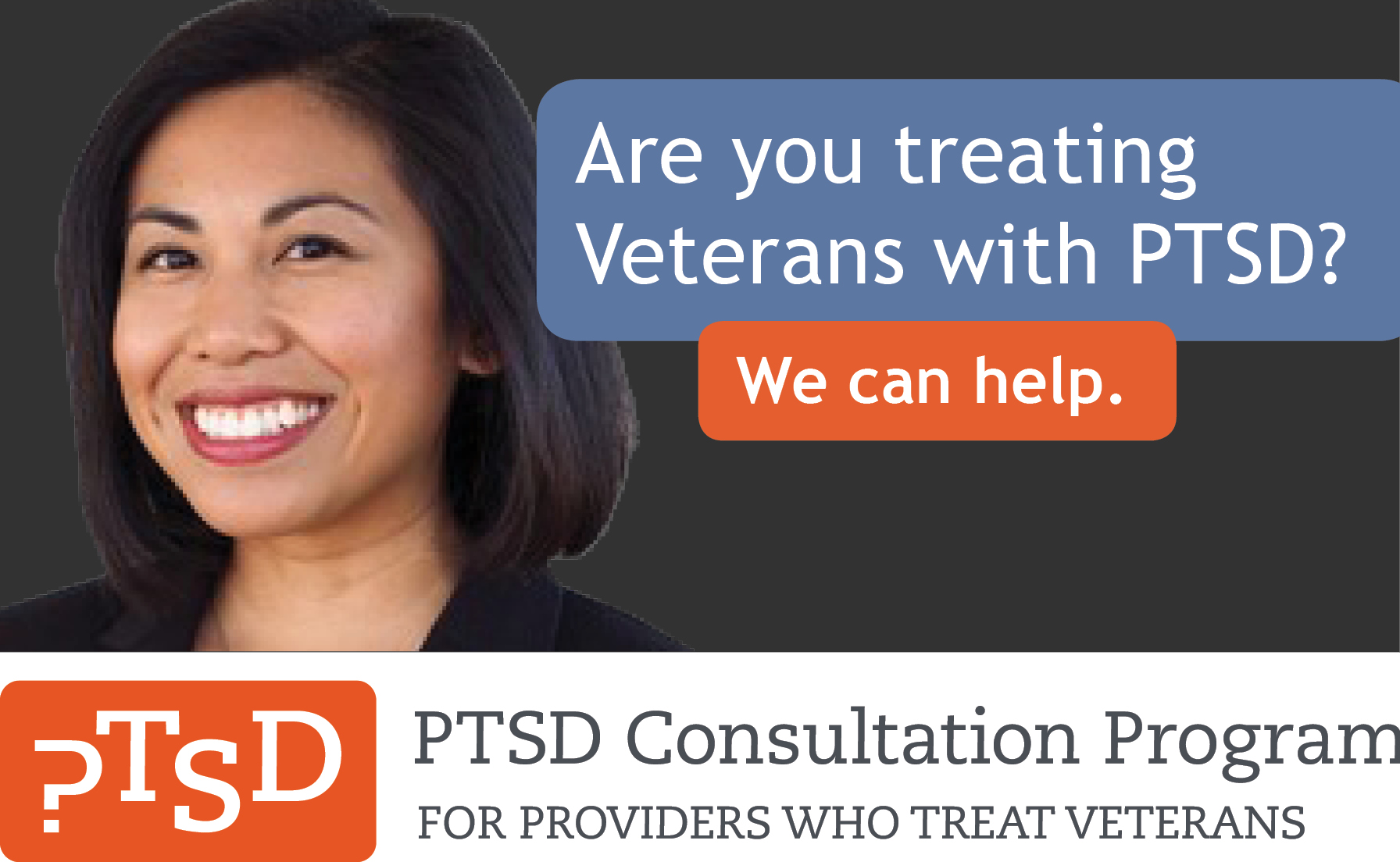PTSD: National Center for PTSD
Veterans with PTSD in the Criminal Legal System
Veterans with PTSD in the Criminal Legal System
In recent years, programs have been developed to avoid unnecessary incarceration of Veterans who have deployed to war and subsequently developed mental health problems. The programs aim to assist Veterans who become involved in the criminal legal system to get treatment for mental health problems that may exist. These programs are especially needed given the numbers of Veterans returning from Afghanistan and Iraq.
Continuing Education Course
Veterans with PTSD and Criminal Legal Involvement: Understanding Intersectional Aspects of Care
This PTSD 101 online course explains the relationship between clinical legal involvement and clinical risk among Veterans, identifying treatment and anti-stigma strategies.
Veterans Treatment Court
In 2008 the Center for Mental Health Service of the US Substance Abuse and Mental Health Services Administration (SAMHSA) convened a conference with the goal of looking at ways to decrease the involvement of Veterans with the criminal legal system and to provide them with mental health treatment. The conference was attended by representatives from law enforcement, corrections, the courts, community organizations, Federal agencies, and Veterans' health and advocacy organizations. Out of this forum emerged recommendations for a Veterans Treatment Court (1).
Veterans Treatment Courts are based on the Drug Court and Mental Health Court models introduced in the 1990s (2). As in these models, the goal is to divert those with mental health issues from the traditional criminal legal system and to give them treatment and tools for rehabilitation and readjustment. While each Veterans Treatment Court is part of a community's criminal legal system, treatment courts often form partnerships with VA and with Veterans' organizations. Since the first Veterans Treatment Court was established in 2008, the number of courts has been growing fast. There are now hundreds of Veterans Treatment Courts across the county (2).
In This Article
How Does a Veterans Treatment Court Work?
One example of how a Veterans Treatment Court works is the court in Tulsa, OK (3). When a Veteran is arrested, police officers ask whether the detainee is a Veteran. If so, the Veteran's eligibility for Veterans Treatment Court and for VA benefits is determined. Only Veterans charged with non-violent crimes (e.g. theft, drug possession) who are in need of mental health or substance abuse treatment are eligible for treatment court.
A Veteran's participation in treatment court is voluntary. Veterans who choose to participate are assessed by a mental health provider, and their treatment needs are determined. Most Veterans receive treatment through the Veterans Health Administration (VHA) network. While Veterans Treatment Court allows the Veteran to remain in the community, a judge regularly checks on progress while the Veteran is in treatment. If the Veteran does not comply with the requirements of the program - for example, receives a positive result on a drug screen or does not adhere to court mandates- the Court will impose sanctions which may include community service, fines, jail time, or re-arrest back through the legal system.
In 2008 the first Veterans Treatment Court was started in Buffalo, NY. According to a report by its founder, Judge Robert Russell (4), the Buffalo program provides medical and mental health treatment, training and job placement services, as well as housing, transportation and other supportive services. Veterans are also provided with mentors: other Veteran volunteers who provide further support for the program participants. Upon completion of the Buffalo program, many participants have had their charges reduced or dismissed.
Veterans Justice Outreach
To provide direct services to Veterans who are involved in the criminal legal system -- whether or not they live in a community that has a Veterans Treatment Court -- VA has developed the Veterans Justice Outreach initiative (VJO). VA is committed to the principle that when mental illness plays a role in non-violent crimes committed by Veterans, both the Veteran and the community are better served by treating the mental illness rather than incarcerating the Veteran (5-6). Under VJO, each VA Medical Center has a designated justice outreach specialist. VJO specialists function as a link between VA, Veterans, and the local criminal legal system. They serve both incarcerated Veterans as well as those involved in the criminal legal system who have not been incarcerated.
VJO staff work with the courts to help eligible Veterans get mental health assessment, treatment planning, and referrals to VA services. Specialists communicate with officers of the court about Veterans' compliance with VA treatment programs, and they may also assist in training law enforcement personnel on issues such as PTSD or traumatic brain injury. For information and a list of VJO contacts, see Justice Outreach.
Conclusion
Efforts such as Veterans Treatment Courts and the VA's Veterans Justice Outreach initiative may prove helpful to Veterans who become involved in the criminal legal system. The goal of these programs is to divert eligible Veterans from the traditional legal system and to make sure they get needed treatment and support. This is important for all Veterans, including those returning from Iraq and Afghanistan, who may be in need of treatment for PTSD or other mental health problems.
References
- CMHS National GAINS Center. (2008). Responding to the needs of justice-involved combat veterans with service-related trauma and mental health conditions: A consensus report of the CMHS National GAINS Center's Forum on Combat Veterans, Trauma, and the Justice System. Delmar, NY: Author. Retrieved from: www.justiceforvets.org/sites/default/files/files/GAINS%20Report%5B1%5D_0.pdf (PDF)
- U. S. Department of Veterans Affairs (March 2022). Veterans Treatment Courts and other Veteran-focused courts served by VA Veterans Justice Outreach specialists. Retrieved from: https://www.va.gov/HOMELESS/docs/VJO/Veterans-Treatment-Court-Inventory-Update-Fact-Sheet-March-2022-508.pdf (PDF).
- National Association of Drug Court Professionals. (n.d.). Justice for Vets: The National Clearinghouse for Veterans Treatment Courts. Retrieved from: www.nadcp.org
- Hicks, G. (2009). Therapeutic court for veterans. VAnguard: VA's Employee Magazine, U.S. Department of Veterans Affairs. Retrieved from: www.va.gov/HOMELESS/docs/VJO/vjo_therapeutic_court_for_veterans.pdf (PDF)
- Russell, R.T. (2009). Veterans treatment court: A proactive approach. New England Journal on Criminal & Civil Confinement, (1), 357-372.
- U.S. Department of Veterans Affairs. (April 30, 2009). Information and recommendations for services provided by VHA facilities to veterans in the criminal justice system. Under Secretary for Health's Information Letter. Retrieved from: www.va.gov/vhapublications/ViewPublication.asp?pub_ID=2019 (PDF)
- Office of Patient Care Services - Office of Mental Health Services, U.S. Department of Veterans Affairs. (2009, November). VA services for Veterans involved in the justice system: The Veterans Justice Outreach (VJO) initiative. Fact Sheet.
You May Also Be Interested In

PTSD 101: Prescribing for Older Veterans with PTSD
Learn best practices for pharmacological treatment for older Veterans with PTSD.


























